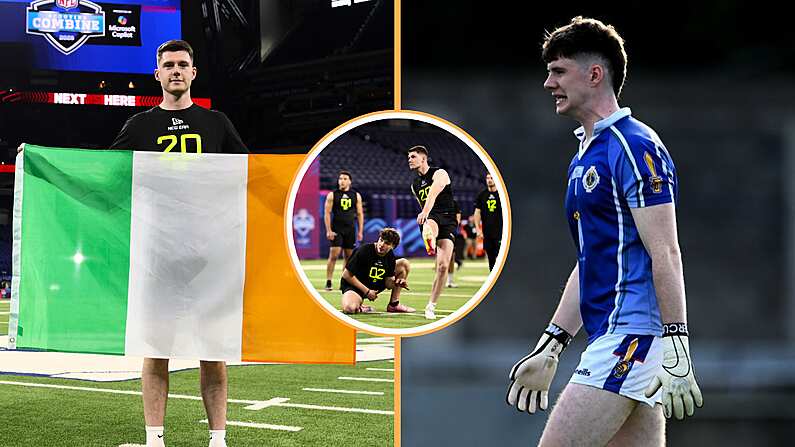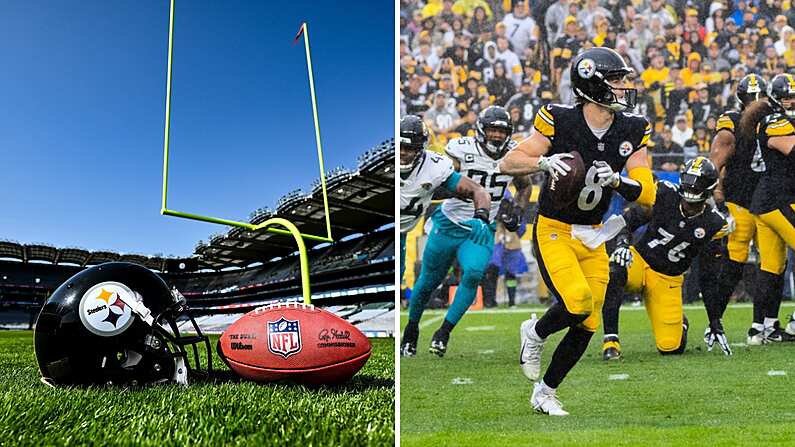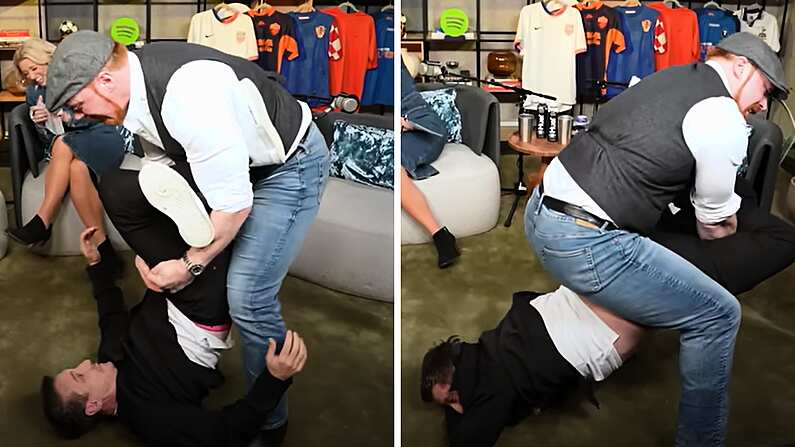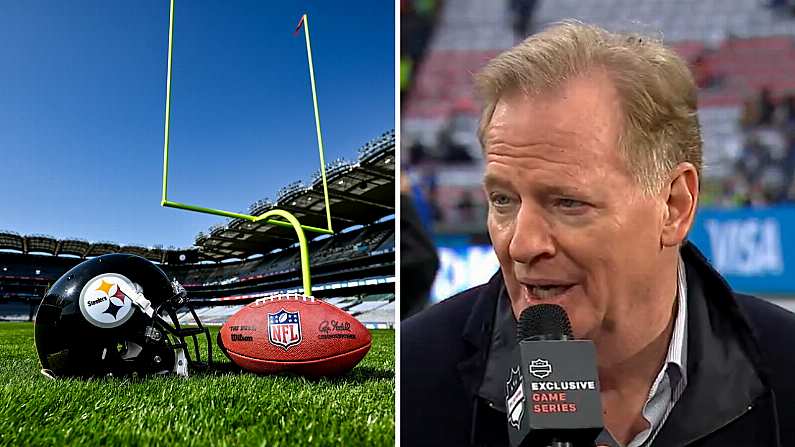You may not have seen the Pittsburgh Steelers' clash with Kansas City, pushed back to make it extremely difficult for Irish fans working on Monday morning to actually catch it. In case you missed the result altogether: the Steelers ground out an 18-16 victory, but the game is most notorious for once again showcasing the NFL's farcical approach to concussion.
In the final quarter, the Chiefs' Chris Conley was subject to this shuddering helmet hit by the Steelers' safety Sean Davis. There was zero attempt made to lead with anything but his head:
Conley spent a minute on the ground after the hit, and was taken off for a medical assessment. He passed the concussion protocol and returned to the field having missed a single play.
If you think that is surprising, wait for Conley's quotes to reporters after the game. He says that the Chiefs' medical team didn't even examine his head:
Yeah, they checked me out but it was mostly a hit to my back and ribs, not my head, so they just had to check me out, do some x-rays on my ribs.
Chris Conley says he passed concussion protocol and hit was more to his back than head. #Chiefs pic.twitter.com/fZSz6GUp3M
— Andrew Carter (@LetItFlyAndrew) January 16, 2017
Ridiculous. Interestingly, last week, legendary footballer and baseball player Bo Jackson revealed that, had he been aware of the dangers of brain injury in the NFL, he would never have played football.
If I knew back then what I know now, I would have never played football. Never. I wish I had known about all of those head injuries, but no one knew that. And the people that did know that, they wouldn’t tell anybody.
The game has gotten so violent, so rough. We’re so much more educated on this CTE stuff, there’s no way I would ever allow my kids to play football today.
The NFL estimates that 6,000 former players - nearly three in 10 - could develop Alzheimer’s disease or moderate dementia caused by head trauma. Last year, the league paid $1bn to settle thousands of concussion lawsuits filed by former players who have been diagnosed with brain injuries linked to repeated concussions.












